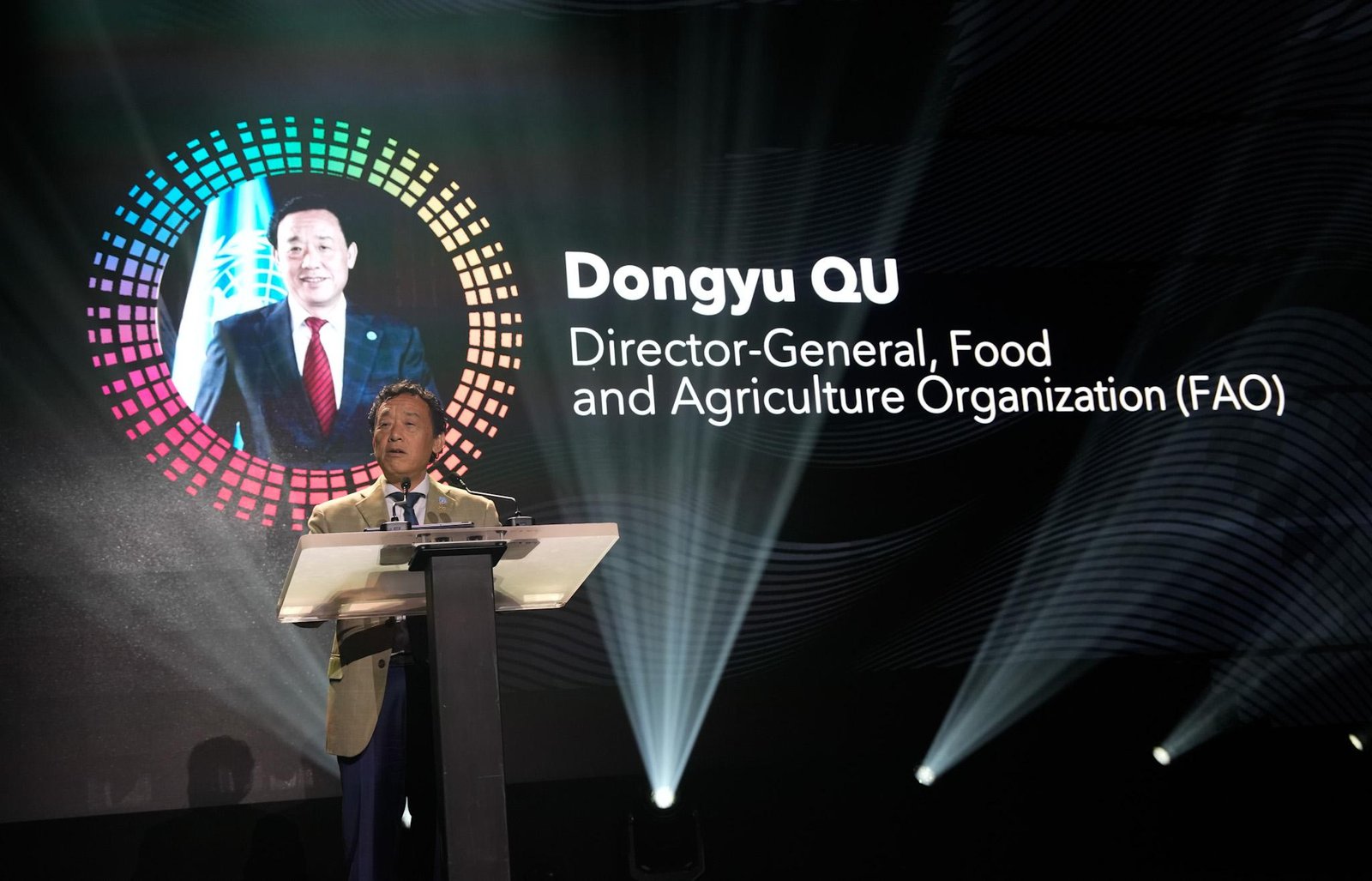Wednesday, 28 January 2026

Image Source: FAO
At the opening of the AI for Good Summit in Geneva, the Food and Agriculture Organization of the United Nations (FAO) and the International Telecommunication Union (ITU) jointly launched the “Robotics for Good – Youth Challenge 2025–2026,” a global competition inviting young innovators aged 12 to 18 to design and build robots that help solve pressing food security challenges. Now in its second edition, the initiative is designed to empower youth to contribute to sustainable agriculture through robotics and artificial intelligence (AI), with FAO providing strategic mentorship and technical guidance via its Youth Innovation Lab and research platforms.
FAO Director-General Qu Dongyu, delivering the keynote address, emphasized the transformative power of AI in reshaping global agrifood systems. He underscored that the digital divide is fast becoming a development divide, with 2.6 billion people still offline and rural communities in low-income countries disproportionately excluded. Without deliberate efforts to ensure digital inclusivity, he said, AI’s potential to alleviate poverty, build climate resilience, and stimulate agricultural innovation will remain out of reach for many.
He highlighted FAO’s push to integrate AI into practical, affordable, and locally relevant tools for farmers. Among these efforts are AI-powered advisory services tailored for smallholder farmers and delivered in local languages, made possible through partnerships like Digital Green. By leveraging generative AI, FAO has already reduced the cost of farmer support services from $30 to $3 per farmer, with further cost reductions anticipated. FAO is also using AI in remote sensing and geospatial analysis to monitor drought, water stress, land use, crop types, and forest health. The organization is deploying predictive models to enhance farmer decision-making around sowing, harvesting, and marketing, while using open-source Big Data to detect food insecurity risks before they become crises.
The Director-General also unveiled FAO’s ongoing work on a dedicated “knowledge bot” built from its digital library of over 150,000 scientific publications, and its development of the world’s first agrifood-focused foundation AI model that will deliver context-specific guidance across the food value chain—from planting to post-harvest.
Speaking to the need for inclusive governance, Qu reaffirmed FAO’s commitment to ethical, transparent, and human-centered digital solutions. As a founding member of the Digital Public Goods Alliance and signatory to the Rome Call for AI Ethics, FAO aligns its digital agenda with its strategic framework for “Four Betters”: Better Production, Better Nutrition, a Better Environment, and a Better Life.
He urged governments, industry, civil society, and youth to come together to shape an AI ecosystem that bridges divides and accelerates sustainable transformation in agriculture and food systems.
Organized by the International Telecommunication Union and co-convened by the Government of Switzerland along with more than 40 UN agencies, the AI for Good Summit runs from July 8 to 11 in Geneva. The event brings together global stakeholders across government, research, industry, and civil society to harness AI’s potential in addressing some of the world’s most urgent challenges, with this year’s spotlight on equitable digital transformation in agrifood systems.